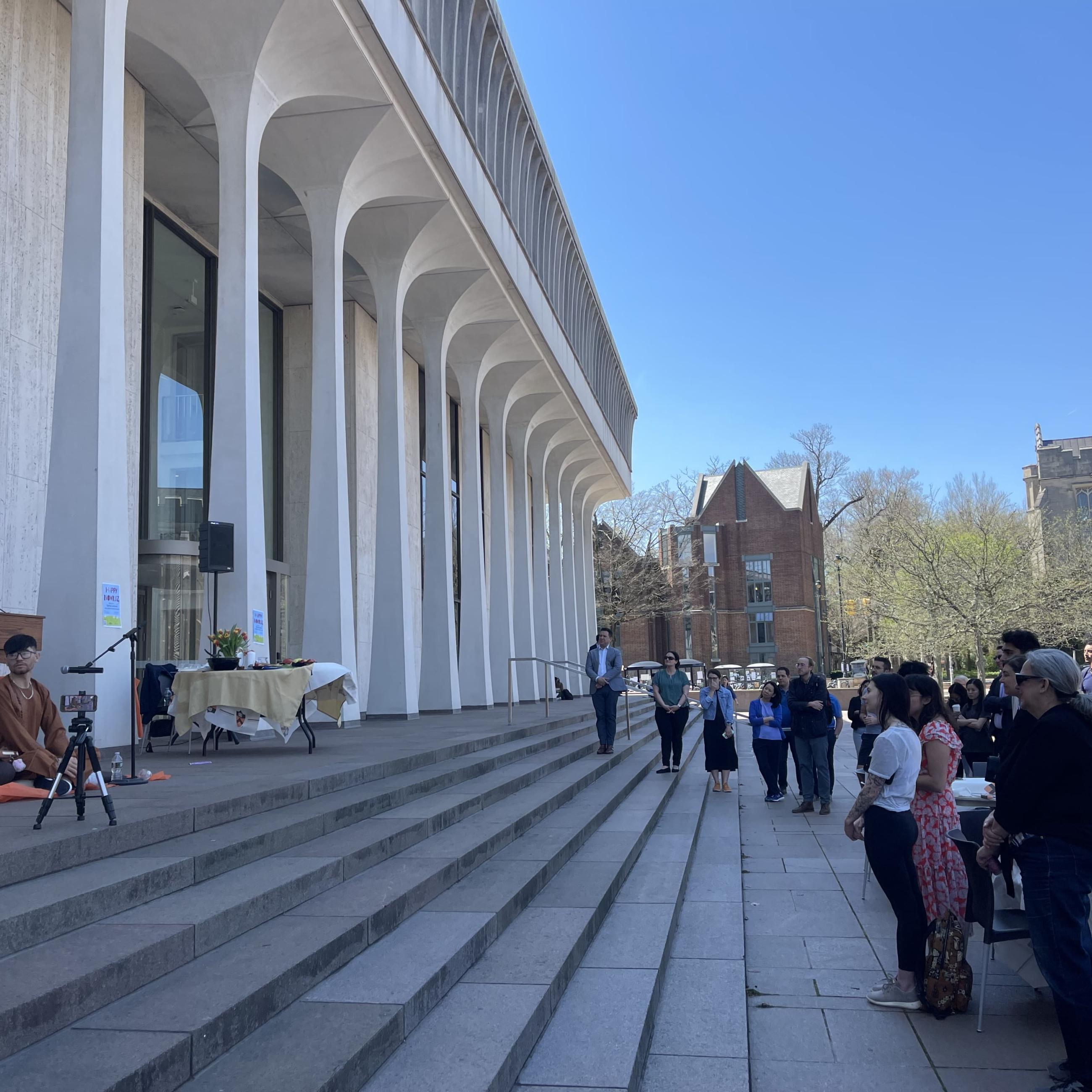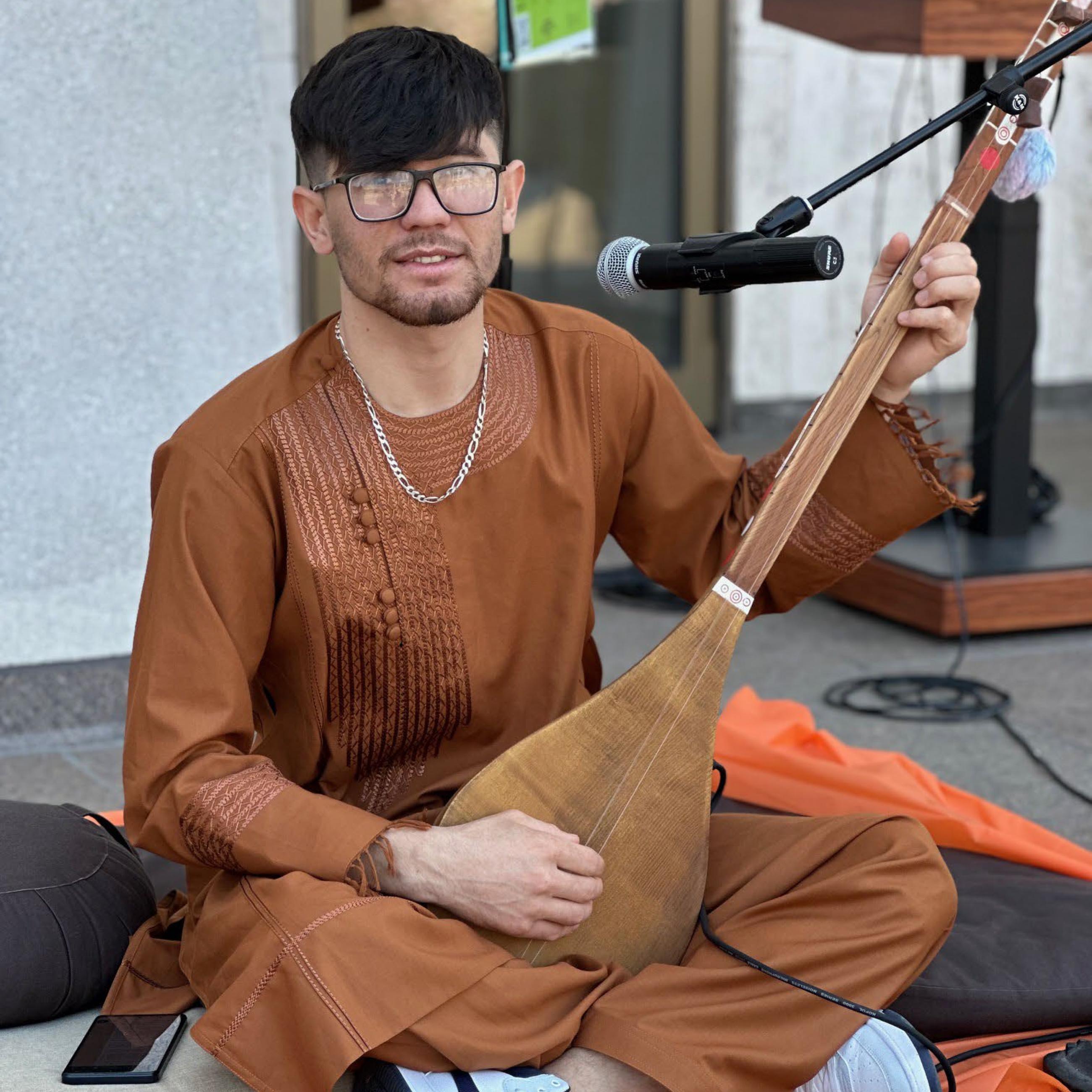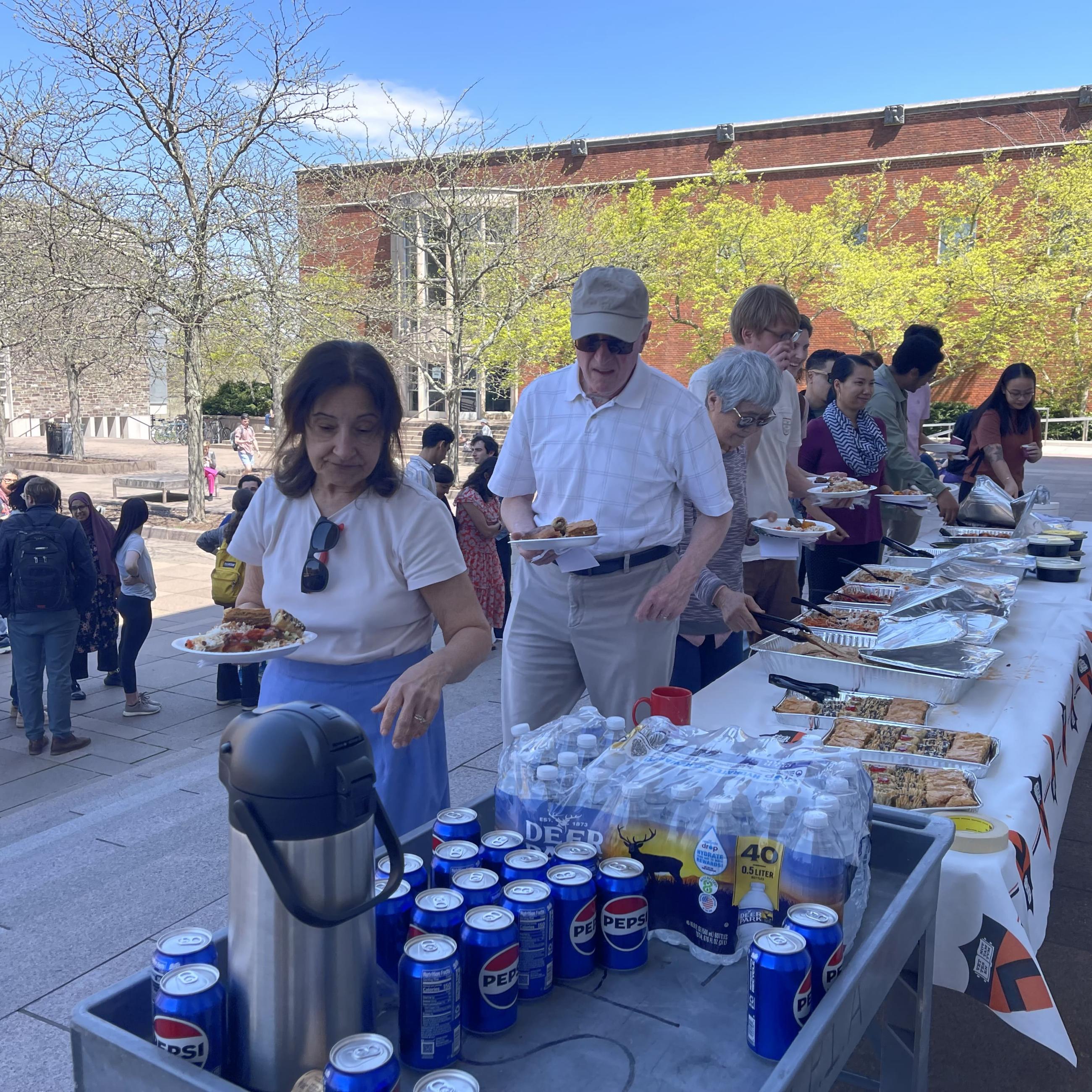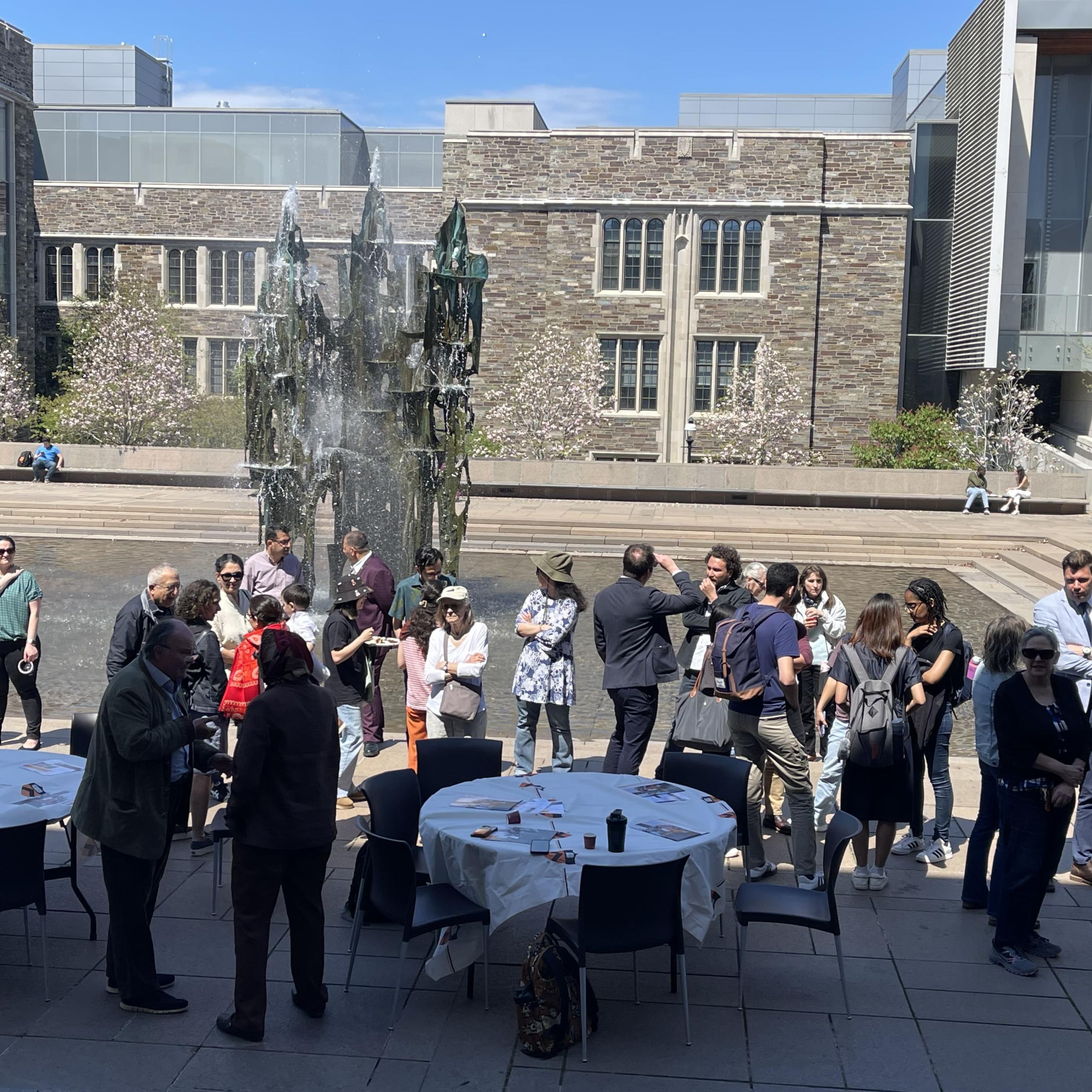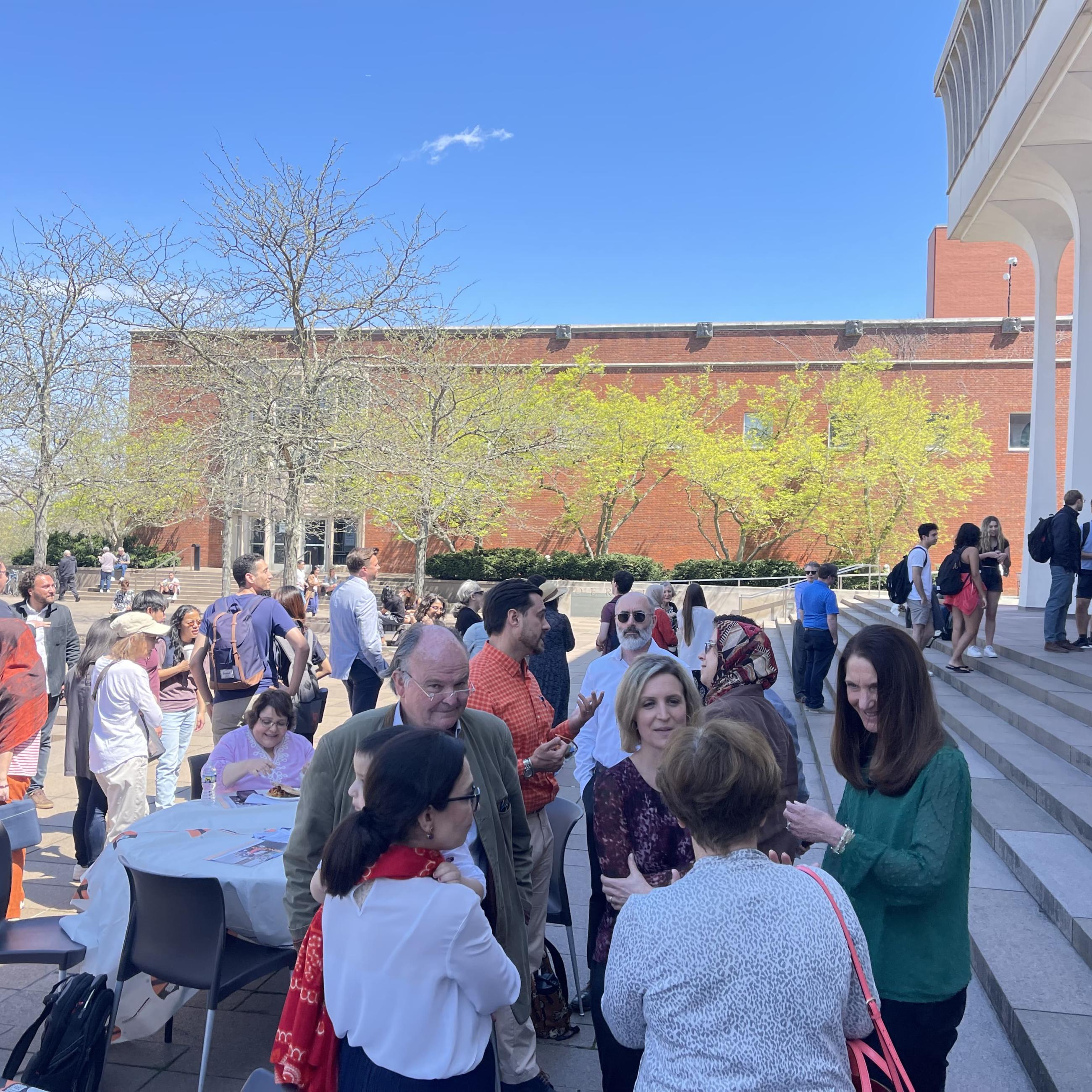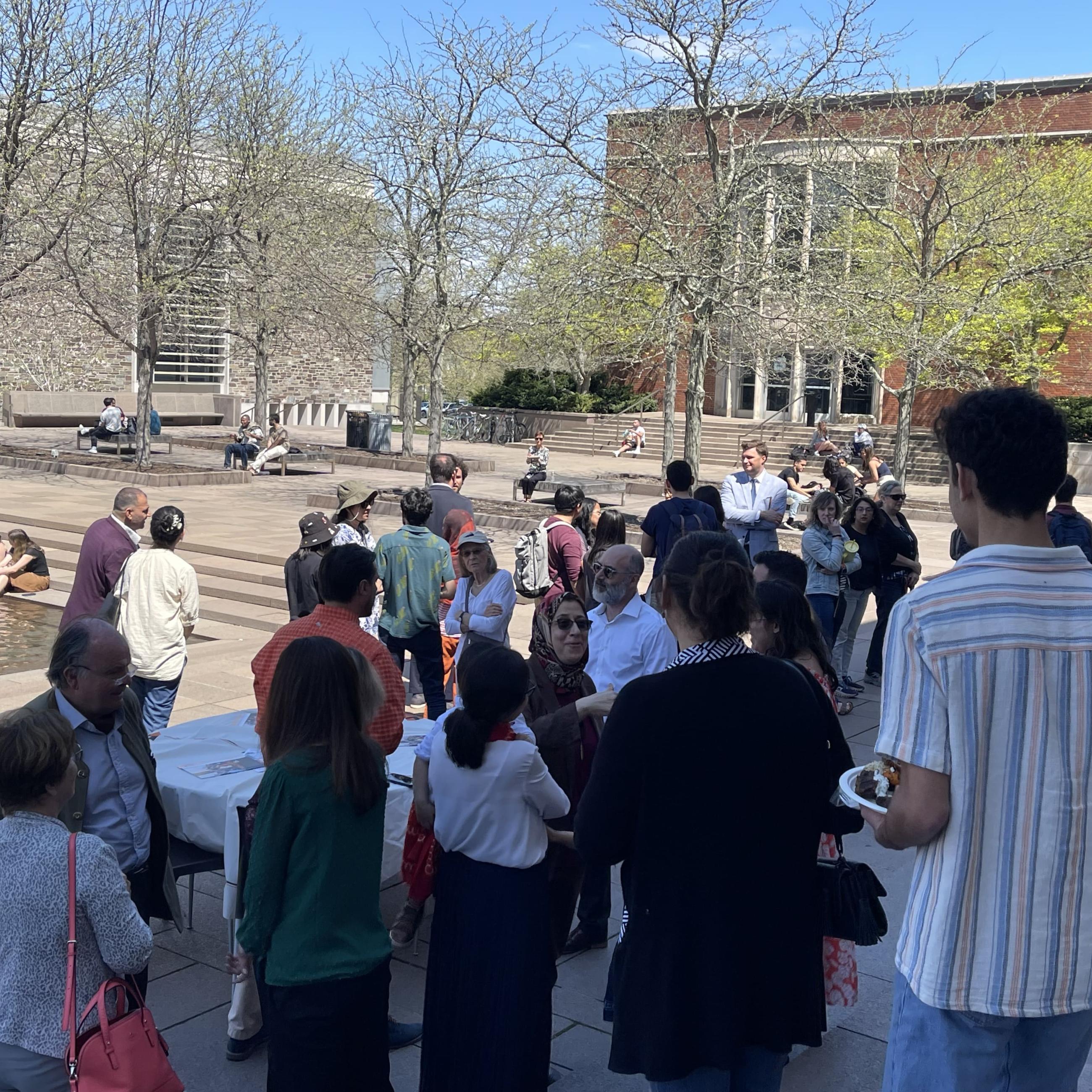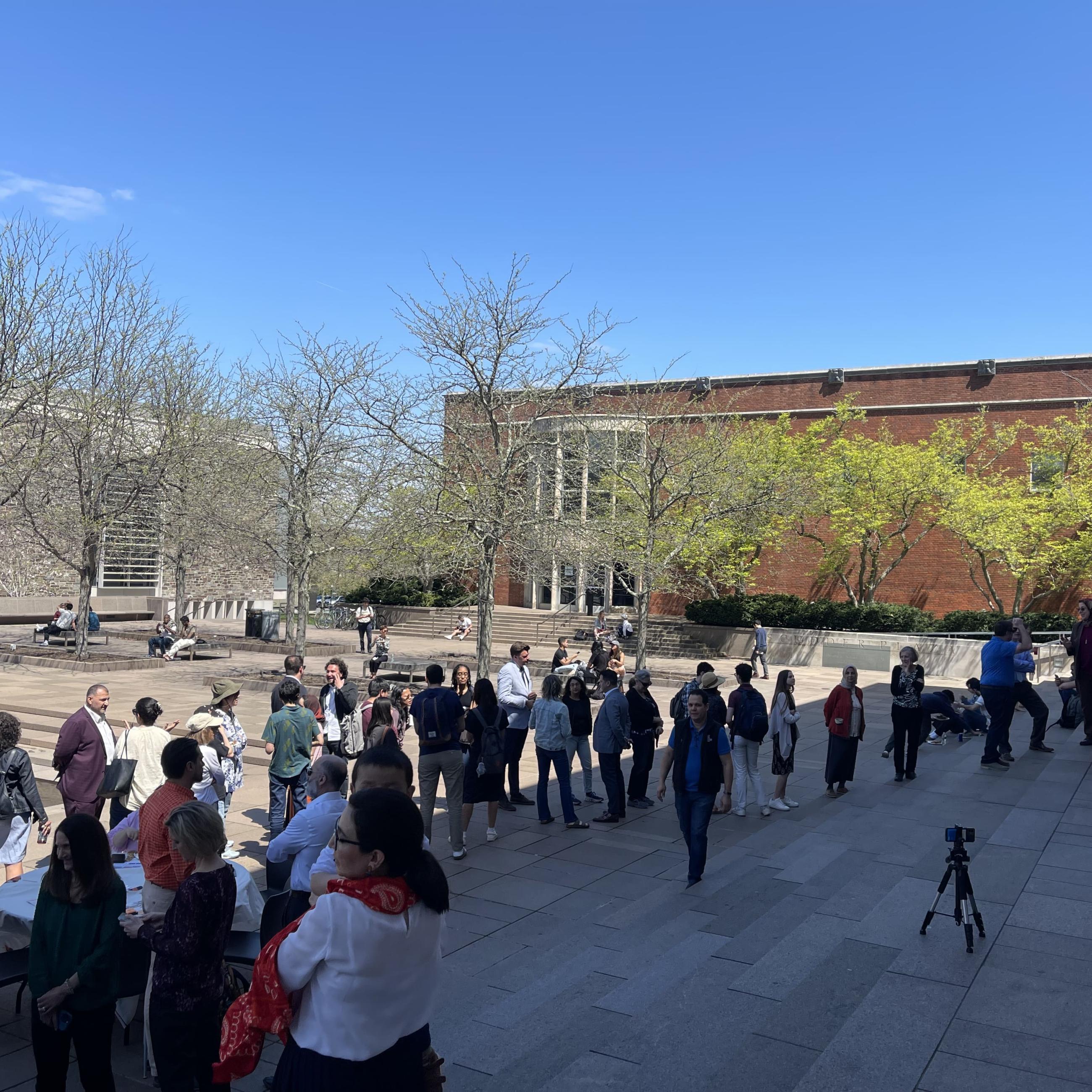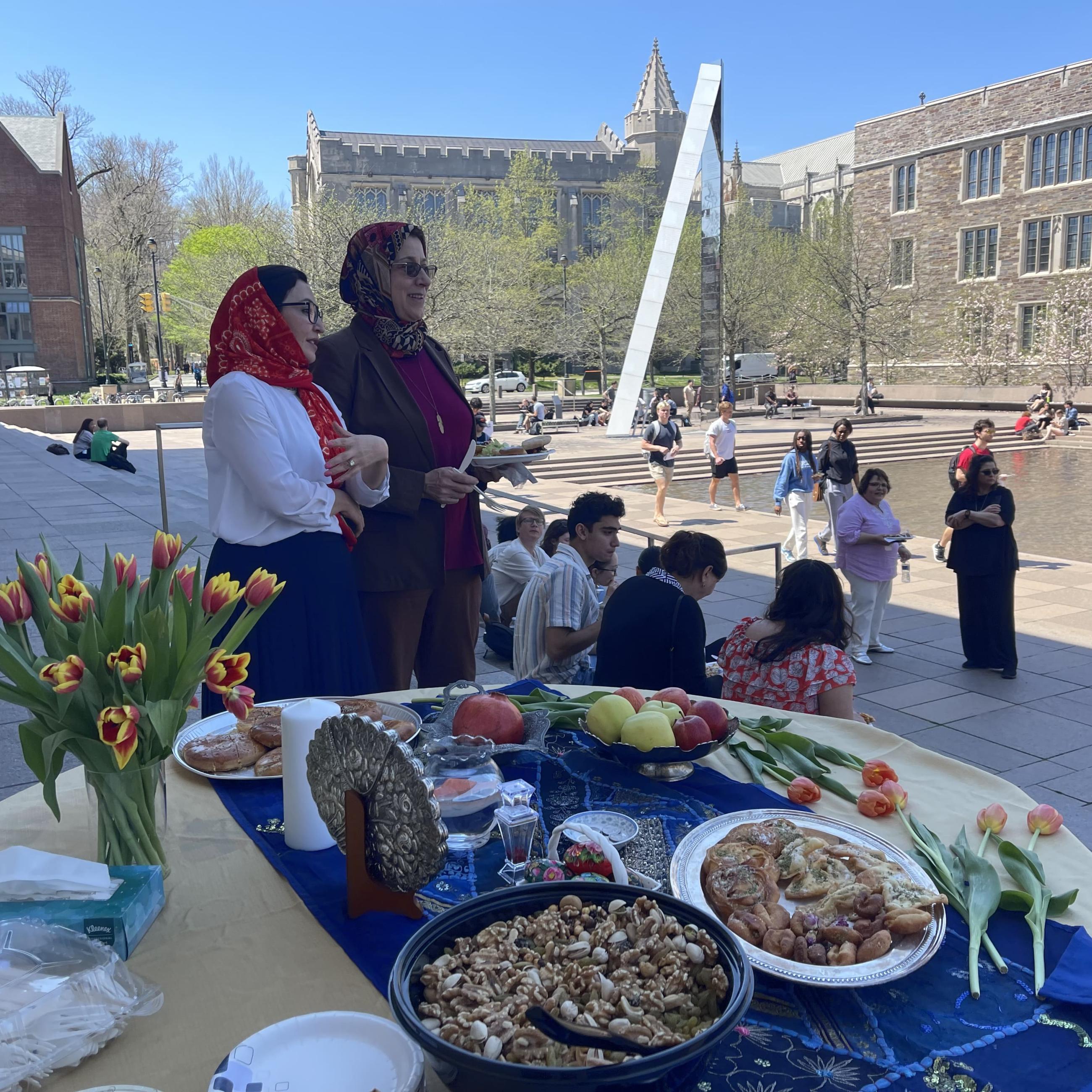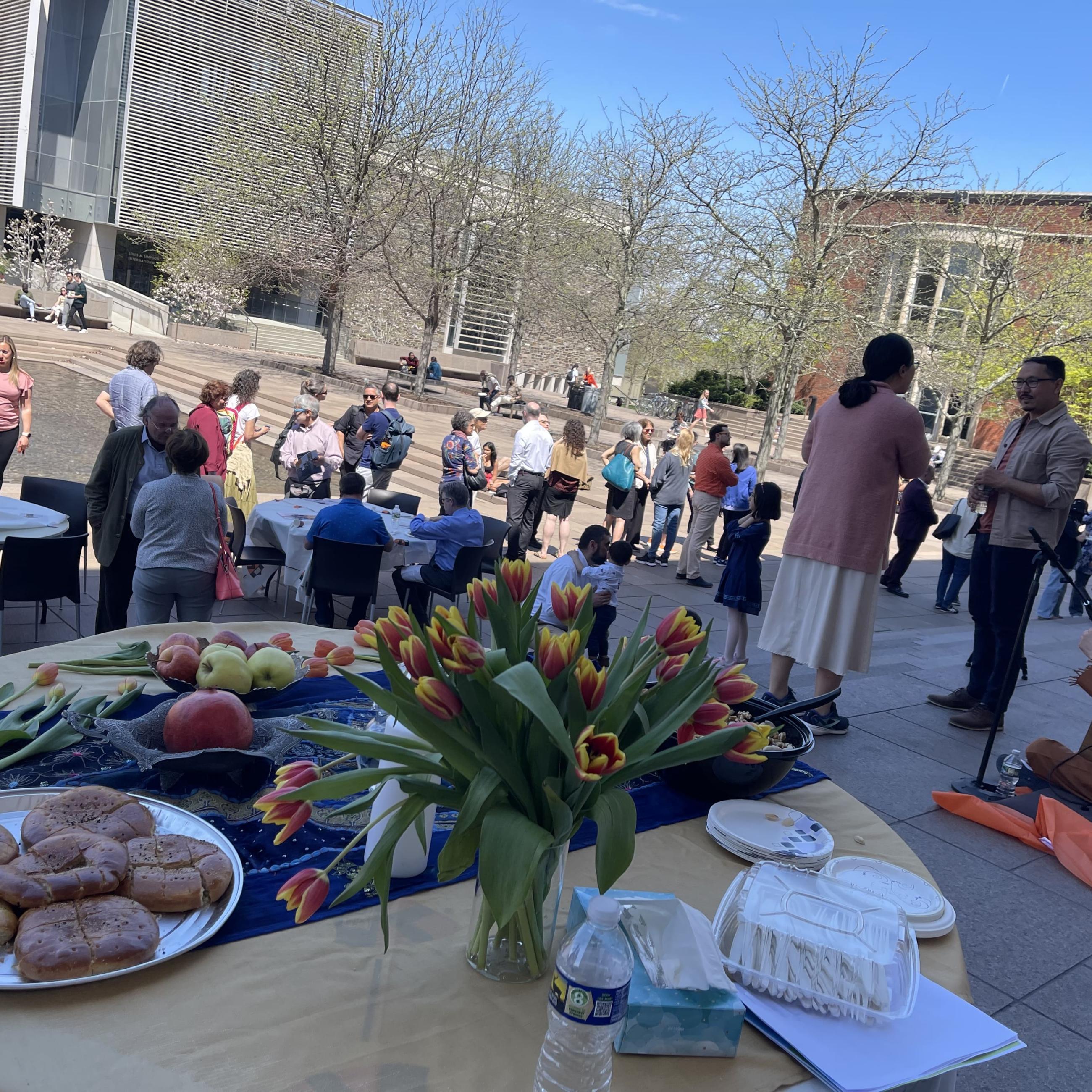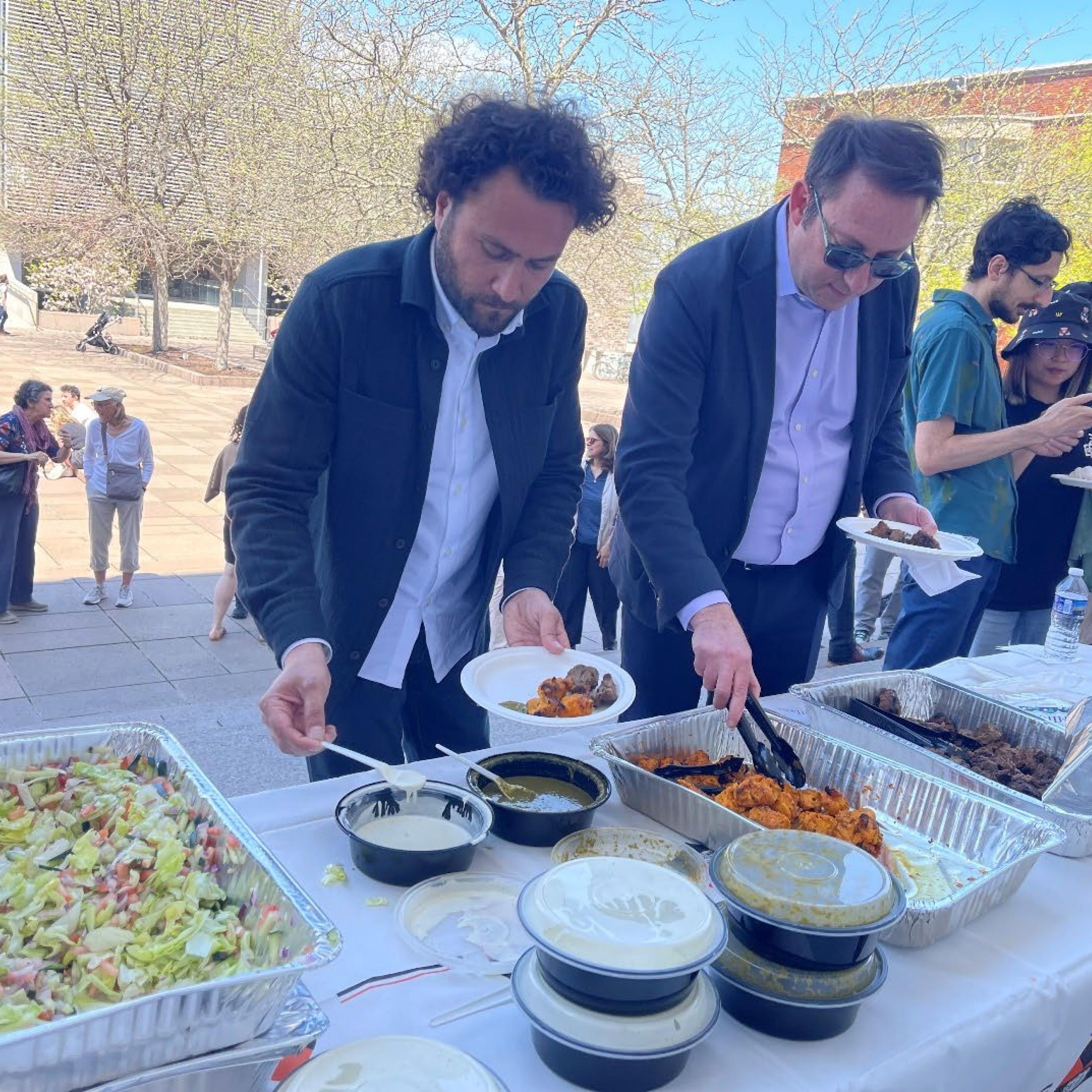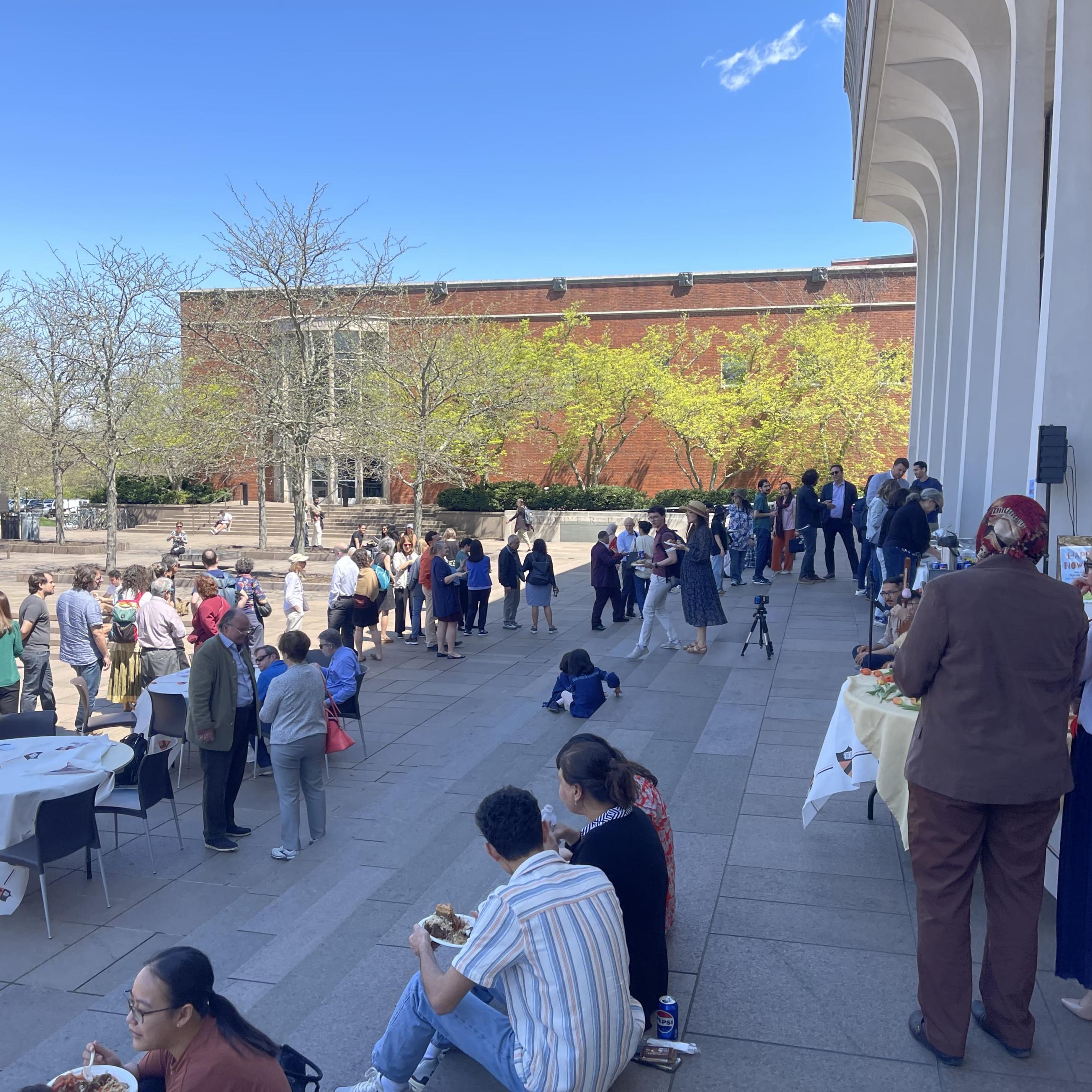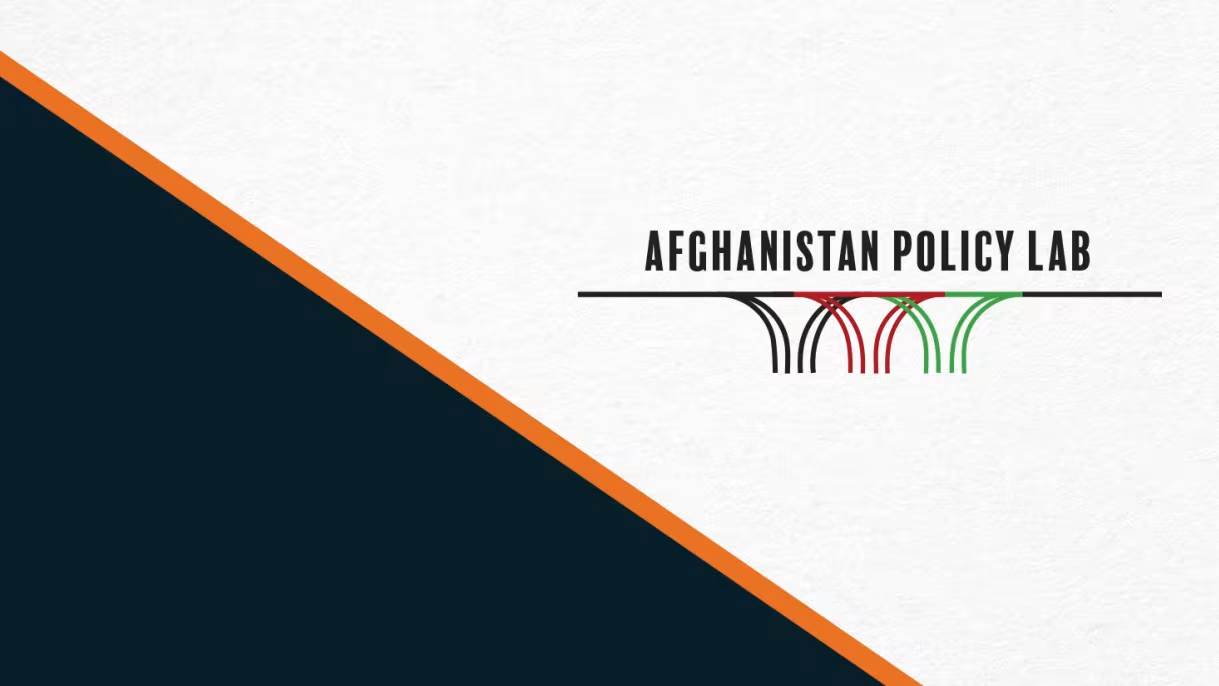

Celebrating Nowruz and Welcoming Spring
On a beautiful sunny day, with Princeton SPIA’s Afghanistan Policy Lab (APL), members of the Princeton community at SPIA gathered to celebrate Nowruz outside of Robertson Hall. The splashing sound of water from the fountain of freedom, accompanied by Afghan traditional music, further glorified the celebration.
Organized by APL on April 15, the event aimed to welcome spring and revitalize the energy for the upcoming year. A significant turnout from the Princeton community, including faculty, staff, and students graced the occasion. This day is celebrated on March 21, however, as it coincided with the month of Ramadan, APL delayed its celebration for the following month.
Nowruz which translates to “New Day” in Persian, marks a tradition, believed to have originated 3000 years ago. This New Year's celebration is observed across various regions worldwide, spanning from the Balkans, the Black Sea Basin, the Caucasus to Central Asia, the Middle East and beyond.
Nowruz symbolizes the onset of spring. It promotes harmony and unity among communities, families, and individuals. Customs and rituals associated with Nowruz vary across cultures but commonly pre-New Year’s preparations such as thorough house cleaning, wearing new clothes, preparing delicious food, and visiting friends and family members.
On Nowruz Day at SPIA, the event commenced with a warm welcome from the APL director, Ambassador Adela Raz, followed by Gran Hewad, Fellow at APL, providing an explanation of Nowruz with its historical and cultural overview. He also elaborated on Haft Mewa - a traditional fruit salad along with its syrup made from seven dried fruits simmered in a large pot, Haft Seen - the seven food items starting from the letter “S” in the Persian language and Samanak, a sweet dish made of whole wheat, wheat flour, sugar and some other ingredients.
“Nowruz has been a cherished tradition in Afghanistan for millennia and it has been always celebrated with great excitement by people from various regions, each with their unique customs. People from different parts of Afghanistan celebrate it in different ways. Since that time is the blooming season, it is also called the Farmer Day,” Gran Hewad added.
SPIA graduate student, Rooya Rahin, read two poems during the event. The first, titled “A One-way Flight” captured her emotions of being far away from one’s home country but still feeling belonging. Her words echoed the inner connection she maintains with her roots in Afghanistan, despite never having set foot in the country. The second one by the famous poet Rumi, welcomed the arrival of Nowruz.
Following that, the Afghan musician, Jawad Malistani performed the Afghan traditional instrument Dambura and sang traditional songs welcoming Nowruz. The event concluded with participants delighting in the spread of Afghan traditional cuisine. In Afghanistan, Nowruz is celebrated with great enthusiasm. Reflecting more on the celebration of that rich historical event, our fellows shared their experiences of the Nowruz celebration back in Afghanistan. APL fellow, Nazeela Elmi, described the Nowruz celebration in her province of origin as follows:
“As Nowruz approached, Balkh became the center of the celebrations and festivities. Afghans from across the country visited the famous gastronomy of northern Afghanistan and participated in Jashn-e-Gul Surkh, the Festival of Red Tulips. The streets were decorated with red floral lights and the nightlife of March was always lively, serene, and full of Nowruz carols with the Mazar’s famous ice cream shops open all night long for visitors.
“Jhanda Bala, is a hybrid of a traditional and religious ritual in the Shrine of Hazart-e- Ali in the historic Balkh, Mazar-e Sharif. People over centuries have come together at the shrine the morning of the first day of Spring to celebrate it. It is a flag-raising ceremony of the shrine, representing faith and unity, and marks the start of the new year or Nowruz. Unfortunately, in the past two years, Jhanda Bala has not taken place and the surroundings of the shrine remain empty with the celebrations banned and under the Taliban.”
APL fellow, Lutf Ali Sultani narrated the Nowruz celebration.
“In our village in central Afghanistan, Nowruz holds a significant place as one of the most cherished and historic festivals. On the first day of Nowruz, families and neighbors gather to prepare a special sweet called “Halwa -e- Sorkh”. Together, they enjoy the good time by telling jokes. Moreover, mothers and grandmothers boil eggs for the children for the local game “Tokham Jangi”, where children crack eggs against each other. The egg that successfully cracks the most others is declared the winner, and the child who owns it receives the cracked eggs as the prize. This tradition not only adds to the festivity but also symbolizes the commencement of the new year in our village.”


